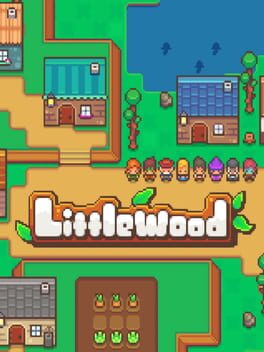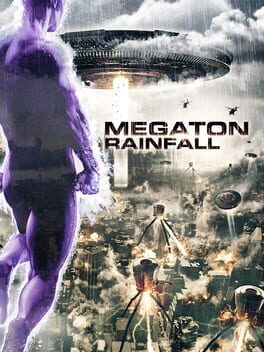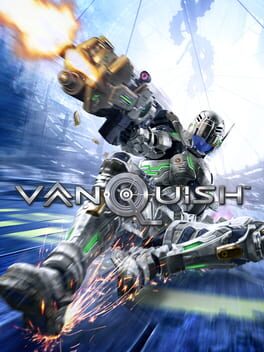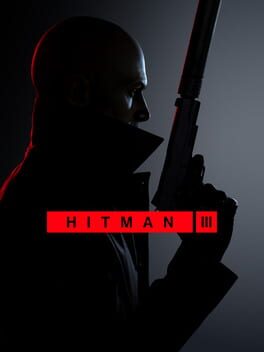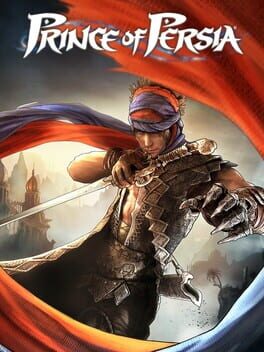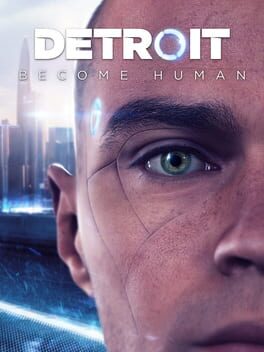deknalis
2019
This is the only one of this type of farming/town management/relationship builder type game that I've actually found as relaxing as intended. While things like Stardew Valley or Animal Crossing either waste an enormous amount of your time and make you check the game at specific times or have you run against a clock to get things done, here time is abstracted into an "energy bar", and night and exhaustion only happen in accordance to the number of actions taken as opposed to some arbitrary clock. Wish the fishing had something more to it though.
2017
Drown out the vaguely pseudophilosophical and largely disposable story with music from Man of Steel or Unbreakable, and you have yourself a fascinating take on a superhero game, resting somewhere between Superman and Dr. Manhattan. More than anything, a loneliness simulator showcasing the sheer isolation of unfathomable power. Cities and NPCs are like moving ants to you, the virtual nonexistence of their interactivity demonstrating the unbridgeable gap between a normal individual and a deity who holds the keys to all of time and space. In a single second, you can do more damage to a city than any enemy. Protect the people not just from invasion, but from your own incalculable strength. Or venture out into the stars, feeling the complete isolation of their lifelessness, and move from empty world to empty world, flying forward till the end of time.
2010
2021
Rating this more as a trilogy overall, since you can get every map from the trilogy within the same game, and also just because that seems to somewhat unexpectedly be the intention here. While the maps of Hitman 1 and 2 stand alone on their own, Hitman 3’s maps feel very much like a third act, a focused and cohesive story told through the shifts they make to the formula. The narrative crafted through the level design is still top notch, as IOI continue to prove themselves unmatched in building out a sandbox that has its own narrative pulse and rhythm. While nothing here is quite as conceptually clever as Hokkaido gamifying the series’ own mechanics by literally turning disguises into keys, they make up for it by fully living and breathing within the concept of an untethered 47. In fact, not a single mission truly goes back to the fully standard premise and formula on the first playthrough, always shifting either the starting point, the loadout options, or the intel availability. On the one hand, this might hamper future replayability, as I ultimately think Hitman 2 has a slight edge on the map design in a vacuum overall. But on the other, 3 has some of the most well put together and striking first runs of the trilogy. Berlin especially stands out in this regard, as well as the last leg of Chongqing.
In my view, Agent 47 is one of the most compelling central characters in gaming, not despite but because of his almost silent blank slate protagonist status. While most silent protagonists exist as an empty player proxy, 47 has occupied a more interesting space, especially within the new trilogy, serving both as a puppet controlled and carted around by a variety of characters within the world of the game and the players themselves, as well as an in-world blank slate capable of sliding into the identity of others seamlessly. Over the course of the trilogy though, he gains more of a mind of his own, and more freedom from his controllers. Coinciding with this, a greater amount of narrative in each game after the first is placed into his hands through cinematics (and in 3, through the events of the levels themselves). Without getting into spoilers, all that can be said is that 3’s seeming conclusion is nothing if not satisfying for the character, tackling both his formation of a personal identity and free will along with the series’ overarching theme of overcoming control and the most wealthy and powerful individuals still being vulnerable to those underneath them.
Taken as a whole, the new Hitman series is more than the sum of its parts, 2 and 3 especially perfectly complimenting and providing everything the other lacks. Plus you can kill rich assholes with a fish so it’s an automatic perfect score.
In my view, Agent 47 is one of the most compelling central characters in gaming, not despite but because of his almost silent blank slate protagonist status. While most silent protagonists exist as an empty player proxy, 47 has occupied a more interesting space, especially within the new trilogy, serving both as a puppet controlled and carted around by a variety of characters within the world of the game and the players themselves, as well as an in-world blank slate capable of sliding into the identity of others seamlessly. Over the course of the trilogy though, he gains more of a mind of his own, and more freedom from his controllers. Coinciding with this, a greater amount of narrative in each game after the first is placed into his hands through cinematics (and in 3, through the events of the levels themselves). Without getting into spoilers, all that can be said is that 3’s seeming conclusion is nothing if not satisfying for the character, tackling both his formation of a personal identity and free will along with the series’ overarching theme of overcoming control and the most wealthy and powerful individuals still being vulnerable to those underneath them.
Taken as a whole, the new Hitman series is more than the sum of its parts, 2 and 3 especially perfectly complimenting and providing everything the other lacks. Plus you can kill rich assholes with a fish so it’s an automatic perfect score.
2020
Considered 3 stars purely because the bugs are so funny, but ultimately decided against it. Any real fun this game has at the moment (finding random portals into the underworld, freerunning bugs, slipping between the cracks of buildings to get into half finished interiors, etc.) will be "fixed" within the year, while all of the terrible and unsatisfying stat based leveling, mediocre and repetitive missions, vaguely passable but terribly paced story, useless options like dialogue choices and background, and the shockingly braindead AI will likely stick around. Feels less like an RPG and more like a looter shooter, the dildo you find on the ground is probably better than whatever sword you grinded 4 hours to craft.
Have to give a special shoutout to the astoundingly self cannibalizing and needlessly finnicky upgrade paths consisting of armor, armor mods, body mods, weapon classes, weapon mods, hacking mods, stat upgrades, skill upgrades AND perks often but not exclusively tied to the previously mentioned stat upgrades and skill upgrades. There's 30 different ways to get 0.03% damage from firing a gun, and all of them feel equally useless and unsatisfying.
Have to give a special shoutout to the astoundingly self cannibalizing and needlessly finnicky upgrade paths consisting of armor, armor mods, body mods, weapon classes, weapon mods, hacking mods, stat upgrades, skill upgrades AND perks often but not exclusively tied to the previously mentioned stat upgrades and skill upgrades. There's 30 different ways to get 0.03% damage from firing a gun, and all of them feel equally useless and unsatisfying.
2008
(spoilers ahead)
Full disclosure, I wasn't a fan of the first game and really only became interested here because the leaks and shitstorm showed this one was at least gonna be actually daring and interesting. Most of the sentimental drama beats still comes off broad and manufactured to me (though nothing here is worse than the opening of the first game in that regard imo), but it's also much less of an issue since it feels like there's much more to the story than that. The first Last of Us was a kind of paint by numbers drama, but Part II feels much more like archetypal exploration, almost feels like it should be set to a folk song. A parable of generational trauma reverberating and spreading through vengeance and violence. Characters again do unbelievably awful things in the name of love, but it's even hollower this time around. Instead of at least a desire to save or heal, it's a misguided rampage to preserve memory and legacy of people who never would've wanted this in the first place. The gameplay is almost certainly Naughty Dog’s best, maybe just behind Crash Team Racing. The wide open spaces allow for much more choice and freedom in its stealth sections, and the weapon progression feels genuinely varied and valuable. There’s even an actual genuinely horror vibe boss fight. But the dissonance between player and character builds as the game progresses, an increasing alienation from Ellie’s actions in a way that far outstrips anything the first game did with its medium. The way the final act comes together to give you some form of moral high ground by having you fight inhumane slavers made my eyes roll, seeming in the moment a cheap unearned redemption moment. But even though the universe hands her on a silver platter a justification for her journey out west and a noble purpose to letting her bloodlust dissipate, in the end, she just can’t help but reopen the wound again, not even really sure why she’s doing so anymore.
The narrative isn’t without a pretty sizable amount of issues though. The targeting toward capital G Gamers renders this with too much excess and redundancy in getting its point across to you (and it’s not like it’s enough to make them get it anyway). The degree to which Abby is propped up by the game’s second leg to get you to like her is almost comical, and shaving the edges off the (poorly done, but still present) ambiguity in Joel’s decision at the end of the first game is perplexing. People’s reverence of Joel can’t fully be attributed to their desires to live out noble anti-hero fantasies, it was also a product of the first game doing the bare minimum to prod into his past actions and disturbed morality, as well as making any opposition to him in a way that invites or even encourages cop outs and justifications to his actions. Even though I agree with Part II’s assessment of him, it feels less like justified metanarrative comeuppance of his fans and more like a backhanded slap to someone looking at something you invited them to look at. The sheer brutality never feels like the game is revelling in bloody exploitation, but it does feel like it doesn’t justify its purpose past a certain point, becoming excessive more than anything else. Ellie's bloodlust leads to as many compelling emotional and narrative beats as it does to overwritten worked through backwards contrived bits of character parallels and torture porn. This isn’t a story that requires a subtle hand, but it is one that could have benefitted from being less broad with its uses of characters and big dramatic beats.
So it’s pretty good. But just watch Spider-Man 3 and you’ll get a better work about the cycles and self destructive forces of revenge and forgiveness.
Full disclosure, I wasn't a fan of the first game and really only became interested here because the leaks and shitstorm showed this one was at least gonna be actually daring and interesting. Most of the sentimental drama beats still comes off broad and manufactured to me (though nothing here is worse than the opening of the first game in that regard imo), but it's also much less of an issue since it feels like there's much more to the story than that. The first Last of Us was a kind of paint by numbers drama, but Part II feels much more like archetypal exploration, almost feels like it should be set to a folk song. A parable of generational trauma reverberating and spreading through vengeance and violence. Characters again do unbelievably awful things in the name of love, but it's even hollower this time around. Instead of at least a desire to save or heal, it's a misguided rampage to preserve memory and legacy of people who never would've wanted this in the first place. The gameplay is almost certainly Naughty Dog’s best, maybe just behind Crash Team Racing. The wide open spaces allow for much more choice and freedom in its stealth sections, and the weapon progression feels genuinely varied and valuable. There’s even an actual genuinely horror vibe boss fight. But the dissonance between player and character builds as the game progresses, an increasing alienation from Ellie’s actions in a way that far outstrips anything the first game did with its medium. The way the final act comes together to give you some form of moral high ground by having you fight inhumane slavers made my eyes roll, seeming in the moment a cheap unearned redemption moment. But even though the universe hands her on a silver platter a justification for her journey out west and a noble purpose to letting her bloodlust dissipate, in the end, she just can’t help but reopen the wound again, not even really sure why she’s doing so anymore.
The narrative isn’t without a pretty sizable amount of issues though. The targeting toward capital G Gamers renders this with too much excess and redundancy in getting its point across to you (and it’s not like it’s enough to make them get it anyway). The degree to which Abby is propped up by the game’s second leg to get you to like her is almost comical, and shaving the edges off the (poorly done, but still present) ambiguity in Joel’s decision at the end of the first game is perplexing. People’s reverence of Joel can’t fully be attributed to their desires to live out noble anti-hero fantasies, it was also a product of the first game doing the bare minimum to prod into his past actions and disturbed morality, as well as making any opposition to him in a way that invites or even encourages cop outs and justifications to his actions. Even though I agree with Part II’s assessment of him, it feels less like justified metanarrative comeuppance of his fans and more like a backhanded slap to someone looking at something you invited them to look at. The sheer brutality never feels like the game is revelling in bloody exploitation, but it does feel like it doesn’t justify its purpose past a certain point, becoming excessive more than anything else. Ellie's bloodlust leads to as many compelling emotional and narrative beats as it does to overwritten worked through backwards contrived bits of character parallels and torture porn. This isn’t a story that requires a subtle hand, but it is one that could have benefitted from being less broad with its uses of characters and big dramatic beats.
So it’s pretty good. But just watch Spider-Man 3 and you’ll get a better work about the cycles and self destructive forces of revenge and forgiveness.
